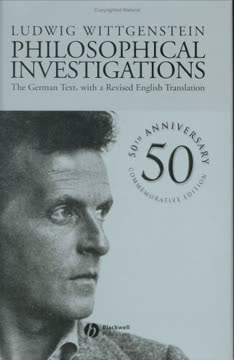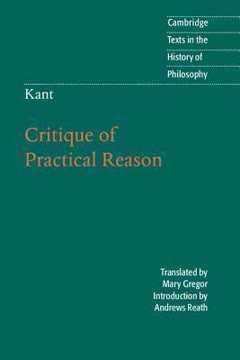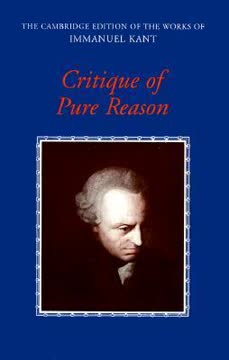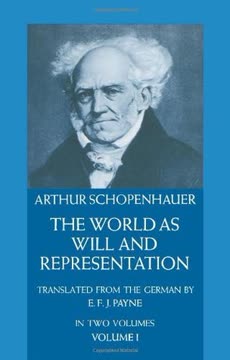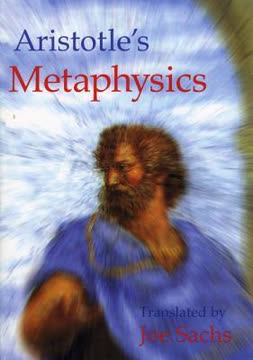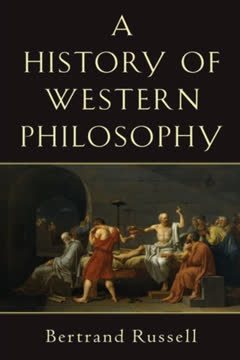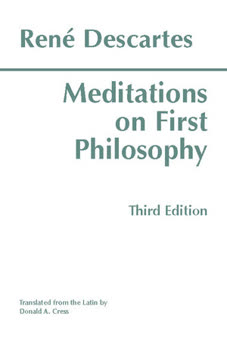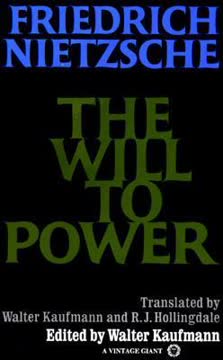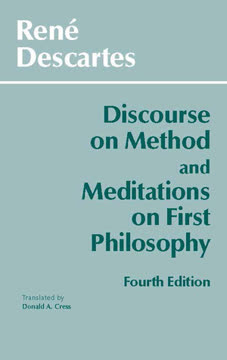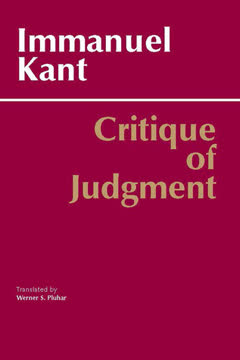Key Takeaways
1. Language Meaning is Use, Not Just Naming
For a large class of cases—though not for all—in which we employ the word "meaning" it can be defined thus: the meaning of a word is its use in the language.
Against the Augustinian picture. Wittgenstein challenges the traditional view, exemplified by Augustine, that language primarily functions by naming objects. This "naming" view oversimplifies the complexity of language, ignoring the diverse roles words play and the contexts in which they are used. Instead, he proposes that the meaning of a word is found in its practical application within a language.
Use over reference. The focus shifts from a word's reference (what it points to) to its use (how it functions). Consider the word "slab" in a simple language-game between a builder and his assistant. The meaning of "slab" isn't just the object itself, but the action it prompts: bringing the slab. This emphasis on use highlights the active, dynamic nature of language.
Beyond simple definitions. This perspective dissolves the haze surrounding the concept of meaning. By examining language in primitive, clear-cut applications, we can better understand how words function. This approach emphasizes the importance of context and the active role of language users in creating meaning.
2. Language-Games: Words in Action
I will call these games "language-games" and will sometimes speak of a primitive language as a language-game.
Language as activity. Wittgenstein introduces the concept of "language-games" to emphasize that language is not merely a system of representation but an integral part of human activity. Speaking a language is like playing a game, with its own rules, strategies, and goals.
Multiplicity of games. There are countless language-games, each with its own unique set of rules and purposes. Examples include:
- Giving orders and obeying them
- Describing an object's appearance
- Reporting an event
- Making up a story
- Asking, thanking, cursing, greeting, praying
Form of life. Understanding a language-game requires understanding the "form of life" in which it is embedded. Language is not an isolated phenomenon but is interwoven with our actions, customs, and social practices. To learn a language is to learn a way of life.
3. Family Resemblances: Concepts Without Rigid Boundaries
I can think of no better expression to characterize these similarities than "family resemblances"; for the various resemblances between members of a family: build, features, colour of eyes, gait, temperament, etc. etc. overlap and criss-cross in the same way.
Rejecting essentialism. Wittgenstein argues against the idea that concepts have fixed, essential properties common to all instances. Instead, he proposes that concepts are like families, with members sharing overlapping and crisscrossing similarities, but no single feature present in all.
The concept of "game." Consider the concept of "game." Board games, card games, ball games, and Olympic games all fall under this category, yet they share no single defining characteristic. Some are amusing, some involve competition, some require skill, and some rely on luck.
Blurred edges. Concepts are not defined by rigid boundaries but by a network of similarities. This "blurred edges" approach acknowledges the flexibility and adaptability of language, allowing for new instances and variations to be included without disrupting the overall concept.
4. The Illusion of Logic's Sublime Purity
The tendency to assume a pure intermediary between the propositional signs and the facts.
Critique of logical idealism. Wittgenstein challenges the notion that logic provides a perfect, crystalline structure underlying language and thought. He argues that this "sublime" view of logic leads to dissatisfaction with ordinary language and a misguided search for an ideal language.
Language on holiday. Philosophical problems arise when language is "on holiday," that is, when it is divorced from its everyday use. By focusing on idealized systems, philosophers lose sight of the actual functioning of language in real-world contexts.
Back to the rough ground. The solution is not to construct an ideal language but to return to the "rough ground" of ordinary language and examine how words are actually used. This involves dissolving philosophical problems by clarifying the use of language, not by imposing artificial structures upon it.
5. Philosophy as Therapy: Dissolving Misunderstandings
The results of philosophy are the uncovering of one or another piece of plain nonsense and of bumps that the understanding has got by running its head up against the limits of language.
Philosophical problems as linguistic confusions. Wittgenstein views philosophical problems as arising from misunderstandings of language. These misunderstandings are not due to a lack of information but to a distorted way of looking at language and its use.
The task of the philosopher. The philosopher's role is not to provide explanations or solutions but to clarify the use of language and dissolve the confusions that give rise to philosophical problems. This involves assembling reminders of how language is actually used and rearranging our understanding to gain a clear view.
Complete clarity. The goal is not to refine or perfect language but to achieve complete clarity, such that philosophical problems disappear altogether. This therapeutic approach aims to liberate us from the bewitchment of our intelligence by language.
6. The Interplay of Rules, Training, and Agreement
To obey a rule, to make a report, to give an order, to play a game of chess, are customs (uses, institutions).
Rules are not self-interpreting. Rules do not contain their own interpretation. Any rule can be interpreted in multiple ways, and interpretations alone cannot determine meaning. The meaning of a rule is established by how it is applied in practice.
Training and practice. Obeying a rule is a practice, a custom, an institution. We are trained to follow rules in particular ways, and our understanding of a rule is demonstrated by our ability to apply it correctly in various situations.
Agreement in judgment. Language requires agreement not only in definitions but also in judgments. This agreement is not a matter of opinion but a shared form of life, a common way of acting and reacting to the world.
7. The Private Language Argument: Sensations and Shared Meaning
How do words refer to sensations?—There doesn't seem to be any problem here; don't we talk about sensations every day, and give them names? But how is the connexion between the name and the thing named set up?
The impossibility of a private language. Wittgenstein argues against the possibility of a language that only one person can understand. Such a language, based on private sensations, would lack the necessary criteria for correctness and meaning.
Public criteria for sensations. Our words for sensations, like "pain," are not defined by private experiences but by public criteria, such as behavior, expressions, and circumstances. These criteria allow us to communicate about sensations and to understand each other.
Language as a social phenomenon. Language is inherently social. Meaning arises from shared practices and conventions, not from private mental states. A private language, lacking these shared foundations, would be meaningless.
8. The Will: Not a Cause, But Woven into Action
Willing, if it is not to be a sort of wishing, must be the action itself.
Against the separation of will and action. Wittgenstein challenges the traditional view of the will as a separate mental faculty that causes our actions. He argues that willing is not a distinct process but is interwoven with the action itself.
Voluntary movement. Voluntary movement is characterized by the absence of surprise. When I raise my arm, I do not observe it as an external event but experience it as my own action. This experience is not a matter of feeling a special force but of acting without resistance.
Grammar of "I will." The grammar of "I will" is different from that of "I wish." "I will" is an expression of intention, a commitment to a future action, while "I wish" expresses a desire or longing. The two concepts play different roles in our language and lives.
9. Seeing Aspects: A Shift in Understanding
The aspects of things that are most important for us are hidden because of their simplicity and familiarity.
Aspect-seeing as a change in understanding. Wittgenstein introduces the concept of "seeing aspects" to describe how our understanding of an object or situation can suddenly shift, revealing new meanings and possibilities. This is not merely a change in visual impression but a change in how we interpret and engage with the world.
The duck-rabbit example. The duck-rabbit illusion illustrates this concept. The drawing remains the same, but our perception can alternate between seeing a duck and seeing a rabbit. This change is not a matter of adding new information but of reorganizing what we already see.
Beyond visual experience. Seeing aspects is not limited to visual perception. It can also apply to understanding music, poetry, or even social situations. It involves grasping new connections and possibilities, enriching our understanding of the world.
Last updated:
FAQ
What is Philosophical Investigations by Ludwig Wittgenstein about?
- Exploration of language use: The book examines how language functions in everyday life, focusing on the idea that meaning arises from use within specific language-games.
- Critique of traditional philosophy: Wittgenstein challenges the notion that words have fixed, inherent meanings, instead arguing that language is flexible and context-dependent.
- Philosophical method: The work uses a series of remarks and examples to clarify philosophical problems by analyzing ordinary language and dissolving confusions.
Why should I read Philosophical Investigations by Ludwig Wittgenstein?
- Clarifies language and meaning: The book provides deep insights into how language shapes our understanding of reality and helps resolve philosophical puzzles about meaning, mind, and knowledge.
- Challenges assumptions: Wittgenstein encourages readers to question beliefs about private experience, mental states, and the nature of thought, fostering a more nuanced view of communication and understanding.
- Practical philosophical tool: The text offers methods for analyzing everyday language, making it valuable for philosophy, psychology, linguistics, and communication studies.
What are the key takeaways from Philosophical Investigations by Ludwig Wittgenstein?
- Meaning is use: Words gain meaning from their use in language, not from fixed definitions or mental images.
- Language is social: Language is a public, communal activity governed by shared rules and criteria, not a private or purely mental process.
- Philosophy as clarification: Many philosophical problems stem from misunderstandings of language and can be resolved by examining how words are actually used.
What are the best quotes from Philosophical Investigations by Ludwig Wittgenstein and what do they mean?
- "The meaning of a word is its use in the language." This highlights Wittgenstein's central idea that meaning is determined by practical use, not by definitions or mental associations.
- "Philosophy is a battle against the bewitchment of our intelligence by means of language." Wittgenstein sees philosophy as a way to free ourselves from confusion caused by language.
- "If a lion could talk, we could not understand him." This illustrates the importance of shared forms of life and practices for meaningful communication.
How does Wittgenstein define "language-games" in Philosophical Investigations?
- Language as activity: Language-games are various forms of language use embedded in specific social activities, where words gain meaning through their role in these practices.
- Examples of language-games: These include giving orders, telling stories, making jokes, asking questions, and more, each with its own rules.
- Purpose of the concept: The idea demonstrates that language is not a single, uniform system but a network of diverse practices with overlapping similarities, which Wittgenstein calls "family resemblances."
What does Wittgenstein mean by "meaning is use" in Philosophical Investigations?
- Meaning from use: The meaning of a word is determined by how it is used in language, not by a fixed object or mental image.
- Context-dependent: Words can have different functions and meanings depending on the context and the language-game in which they are used.
- Rejects private definitions: Meaning is not an inner experience or feeling but a public, observable phenomenon tied to language practices.
How does Wittgenstein address the concept of "private language" in Philosophical Investigations?
- Private language is impossible: Wittgenstein argues that a language understandable by only a single individual, referring to their private sensations, cannot exist because language requires public criteria for correctness.
- Pain and sensation examples: Words like "pain" gain meaning through their use in public language-games, not through private, inaccessible experiences.
- Language as social practice: Meaning arises from communal use and agreement, making language a fundamentally social phenomenon.
What is Wittgenstein's view on the relationship between thought and language in Philosophical Investigations?
- Thought expressed in language: Thinking is closely linked to language use, but not all thought is linguistic; one can think without speaking and vice versa.
- No private mental language: Wittgenstein denies the existence of a private mental language, arguing that thought without language is not fully formed or communicable.
- Language as vehicle: Language provides the framework for meaningful thought, and understanding a language means mastering a technique.
What role do "criteria" and "rules" play in Philosophical Investigations by Wittgenstein?
- Criteria for meaning: Observable standards or behaviors are essential for ascribing meaning, understanding, or mental states; for example, pain is recognized through public criteria.
- Rules govern language-games: Language use follows rules that are learned and shared within communities, shaping how words are used and understood.
- No hidden mental rules: Wittgenstein focuses on public practices rather than positing hidden mental rules or criteria.
How does Wittgenstein explain the process of learning and understanding language in Philosophical Investigations?
- Learning as training: Language learning is a form of training involving participation in language-games, not just acquiring definitions.
- Understanding through use: To understand a word or rule is to know how to use it correctly within a community.
- Role of examples and practice: Teaching language involves examples, practice, and shared activities rather than abstract explanations alone.
What is the significance of "family resemblances" in Philosophical Investigations by Wittgenstein?
- Concept explanation: "Family resemblances" describes how concepts like "game" or "number" do not have strict definitions but are connected by overlapping similarities.
- Avoiding rigid definitions: This approach rejects the search for essential definitions and instead focuses on how words are used in practice.
- Illustrates language diversity: It shows that language is a network of related uses rather than a set of fixed categories.
How does Wittgenstein approach philosophical problems and their resolution in Philosophical Investigations?
- Philosophy as clarification: Philosophical problems arise from misunderstandings of language and are resolved by clarifying how language is used.
- No new empirical facts: Philosophy does not discover new facts but arranges what is already known to remove confusion.
- Battle against bewitchment: Wittgenstein describes philosophy as a battle against the bewitchment of our intelligence by language, aiming to dissolve confusion rather than solve traditional problems.
Review Summary
Philosophical Investigations is a complex and influential work in 20th century philosophy. Readers find it challenging but rewarding, praising Wittgenstein's insights on language, meaning, and philosophical problems. The book's fragmentary style and difficult arguments can be frustrating, but many consider it a masterpiece that revolutionized philosophy. Wittgenstein explores how language functions in social contexts, critiques traditional philosophical approaches, and examines concepts like rule-following, private language, and the nature of understanding.
Similar Books
Download PDF
Download EPUB
.epub digital book format is ideal for reading ebooks on phones, tablets, and e-readers.
